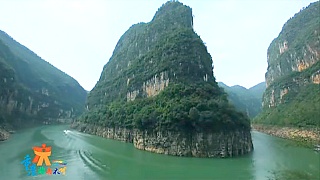 WuYi Shan 武夷山 in FuJian province
WuYi Shan 武夷山 in FuJian province
A film by CCTV ...
[640],shadow=true,start=,stop=
FuJian map

Related Videos
Featured Videos

|
A beautiful film that takes you to all the places along the river ...
YángZǐ Jiāng (modern PinYin), also known in China as Cháng Jiāng (literally, 'Long River'), is the longest river in Asia and the third-longest in the world. It flows for 6,300 kilometers (4,000 miles) from the glaciers on the QingHai-Tibet Plateau in QingHai province eastward across southwest, central and eastern China before emptying into the East China Sea at Shanghai. The Three Gorges Dam on the river is the largest hydro-electric power station in the world.
|

|
|

|
Thoughts on how emotional stress / trauma can get stuck / repressed (suppressed / buried / hidden) and have a big impact on our current health / 'diseases'.
The insights of Pavlov (conditioning) and Freud (repression, the unconscious, projection, ...) remain key facts in psychology ...
Emotional stress is being stuck in the past, in some deep-rooted ways. To live in the now, those roots must be uncovered and removed. True living is not reliving the past, or fearing the future; it is about being in the now, detached from past conditioning / beliefs, and the ensuing fear of / dreams of the future.
Eat when hungry, sleep when tired, live while you're alive.
What you do now, is what will live on.
Simple as that.
|

|
With Shut-up and Travel ...
|

|
With ErMi ChuiYan ...
Bonus film - kiwi wine ...
|

|
With Walk East ...
|

|
While thought can be a great tool, one can be controlled by ones thoughts rather than the reverse; that is, a slave to one's past experiences and how that projects into the future like a railway track.
To be endlessly controlled by the past, and the past's plans for the future, is to die without having really lived.
How to calm the noise in your mind.
With Eckhart Tolle ...
|

|
With Walk East ...
With Walk China ...
|

|
Two films; sweet rice dumplings further down.
Chicken and cilantro, pan fried ...
Chicken and cilantro dumplings(makes 60 dumplings)
ingredients:
dough:
all purpose flour or dumpling flour 400g a little bit more than 2.5 cups
salt:1g 1/4 teaspoon
room temperature water : 240g a little bit less than a cup
fillings:
cilantro:150g
chicken thigh:500g
regular soy sauce:16g 1 tablespoon
ginger paste:3g 1/2 teaspoon
egg white :1
white pepper powder :1g 1/4 teaspoon
five-spice powder:1g 1/4 teaspoon
2 green onions chopped
salt:4g 1/2 teaspoon
sesame oil :4g 1 teaspoon
for frying :
oil 12g 1 tablespoon
water 60g 1/4 cup杯
cook for 5-6 minutes
Sweet rice dumplings
fillings:
roasted black sesame seeds: 80g
pecans or other nuts 30g
sugar:80g 1/4 cup and 1 tablespoon
melted unsalted butter: 60g 1/4 cup
water:30g 2 tablespoons
wrap:
glutinous rice flour:250g 2 cups
boiling water:140 g 1/2 cup and 1 tablespoon
room temperature water:70g 1/4 cup and 2 teaspoons
to boil the sweet dumplings:
boiling water 800g 3 cups and 1/4 cup
arrowroot starch or lotus root starch or corn starch 22 g 2 tablespoons
water 125g 1/2 cup
fermented sweet rice:1/3 cup
sweetened osmanthus sauce :2 tablespoons
Bonus film : soup dumplings ...
|
Tag search ?

 WuYi Shan 武夷山 in FuJian province
WuYi Shan 武夷山 in FuJian province




